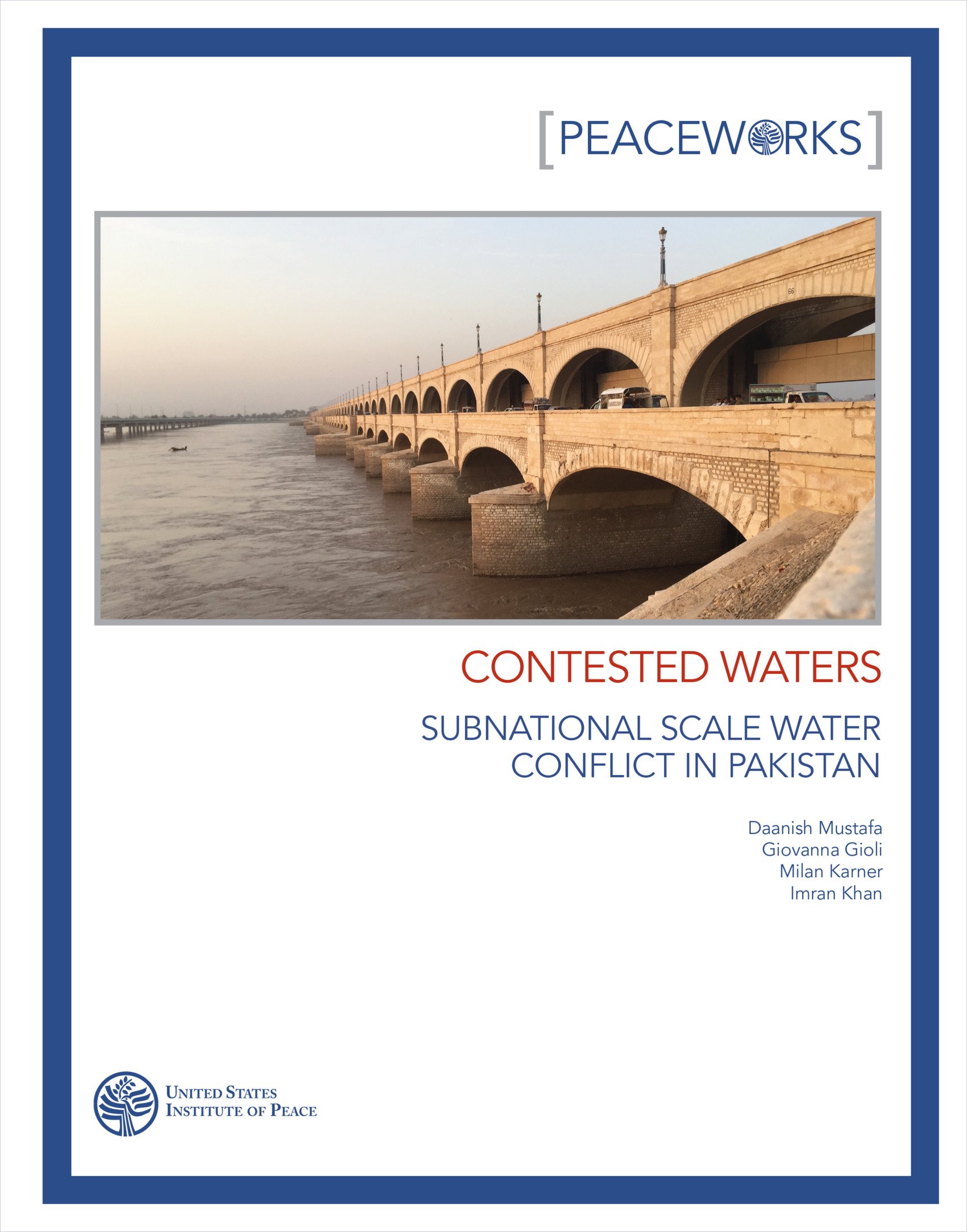This report reviews the evidence for, and politics around, water-related conflict at local, provincial, and interprovincial scales in Pakistan. Drawing on interviews with decision makers and communities at the provincial, municipal, and village watercourse levels, it provides insights into drivers of conflict over water; shows how water is used as a weapon in already existing conflicts; and suggests technical, institutional, and political changes that could help Pakistan negotiate its water-related conflicts.
Summary
- In Pakistan, conflict over water distribution between provinces (upper versus lower riparian) is driven by structural constraints inherent to upstream-downstream dynamics and by the specific geophysical characteristics of the Indus basin system.
- The controversy over large dams is less about water per se than about competing visions of development, and about the scale (national versus local and regional) at which politics are practiced and problems defined.
- Since the inception of the Indus basin irrigation system, what places get flooded and when has been a function of human decisions and power relations and not an inevitable act of nature.
- Early warning and flood-proofing initiatives should be directed to the most highly exposed and vulnerable populations, instead of undifferentiated administrative units, to prevent the hazard from turning into a disaster.
- At the community level, water is more an instrument of conflict than a driver of conflict—that is, it is used as a weapon in conflicts about political allegiances, family, caste, etc. The state often serves as an enabler for more powerful actors, through acts of omission and commission.
- Development in Pakistan needs to take into account livelihoods not related to agriculture. Ill-conceived development around Manchar Lake to benefit agriculture destroyed an entire system of livelihood and fostered conflict between agriculturists and fisherfolk.
- The commodification of water in Karachi and other urban areas precipitates conflict along class, ethnic, and caste lines. People unable to afford high prices for water through tankers or suction pumps often engage in violent conflict to access water.
- Addressing water conflict requires acknowledging water’s politically and culturally mediated values and not just its economic value. Technocratic engineering engagement with water conflict is not enough; political engagement is also necessary.
- Water conflict is partly a manifestation of people’s attempt to claim legitimacy for their experiences within local environments against the encroachment of national scale imperatives.
About the Report
Based on interviews with decision makers and communities at the provincial, municipal, and village watercourse levels, this report reviews the evidence for water-related conflict at local, provincial, and interprovincial scales in Pakistan. It shows how water—a precious, unique, and finite resource—is not only contested in itself but also drafted as a weapon in conflicts over caste, ethnicity, and political allegiance. It explores competition for water between upstream and downstream provinces, controversy over large dam projects, conflict between fishing and farming communities in a degraded water environment, and conflicts related to irrigation and flooding. It also suggests technical, institutional, and political changes that could help negotiate Pakistan’s water-related conflicts and promote a more inclusive and sustainable development path.
About the Authors
Dr. Daanish Mustafa is a Reader in Politics and Environment at the Department of Geography, King’s College London. Dr. Giovanna Gioli is a Livelihoods Adaptation Specialist at the International Centre for Integrated Mountain Development, Nepal. Mr. Milan Karner is a doctoral student at the Department of Geography, King’s College London. Mr. Imran Khan is a postgraduate student in development anthropology at the London School of Economics and Political Science. The authors gratefully acknowledge the help of Dr. Moeed Yusuf and Mr. Colin Cookman (United States Institute of Peace); and of Mr. Atta-ur-Rehman and Mr. Fawad Khan (Institute for Social and Environmental Transition–Pakistan). They are grateful to Mr. Zarif Khero, Mr. Shams-ud-deen, Mr. Sono Khangharani, Mr. Faisal M. Qamer, and the Social Policy and Development Centre, Karachi, for guidance; and to the interview subjects, whose participation made this project possible. The views and interpretations expressed in this publication are the authors’ and not necessarily those of their organizations.
